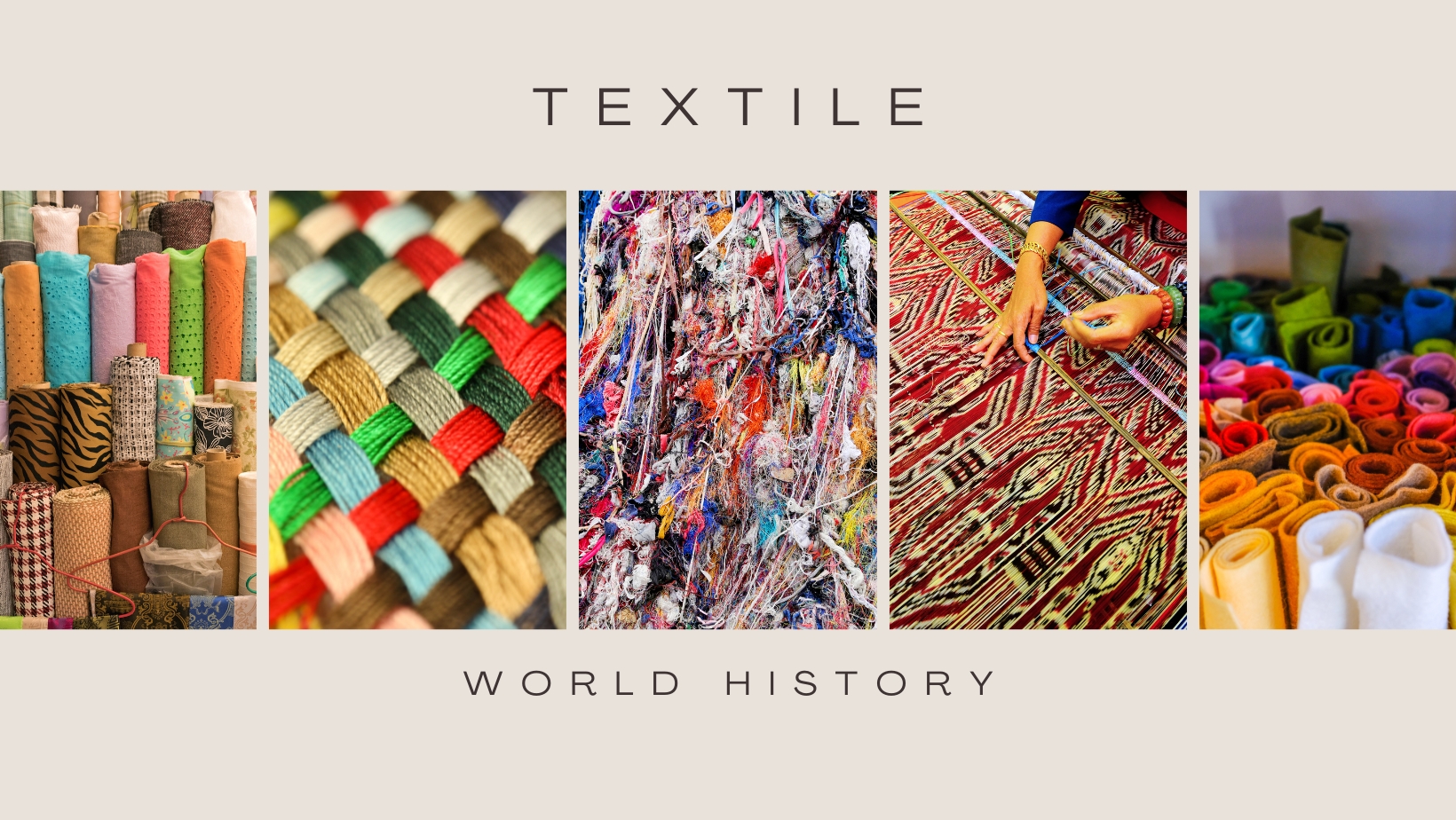From the intricate tapestries that adorned the walls of medieval castles to the mass-produced fabrics that fill our closets today, textiles have been woven into the stories of civilizations throughout history. The history of textiles is a rich and complex tapestry that reflects human innovation, trade, and social development. In this two-part blog series, we’ll explore the global history of textiles and delve into the rich traditions of Philippine textiles.
Early Innovations
The earliest known examples of textile production date back to the Stone Age, when humans used animal hides and plant fibers to create clothing and shelter. As civilizations developed, so too did the art of weaving. The loom, a tool used to weave threads together to create fabric, was invented in different parts of the world around the same time, suggesting that the desire to create textiles was a universal human impulse.
Natural fibers like flax, cotton, wool, and silk were the foundation of early textile production. Flax, which was cultivated in ancient Egypt, was used to create linen, a fabric prized for its durability and coolness. Cotton was first domesticated in India and Pakistan, and was later brought to the Americas by Spanish colonizers. Wool, which comes from sheep and other animals, was used to create warm clothing in colder climates. Silk, which was first produced in China, was highly prized for its softness and lustrous quality.
The use of natural dyes was also an important aspect of early textile production. Dyes were made from plants, minerals, and other materials, and were used to create vibrant colors and patterns. Indigo, which was used to create blue dye, was one of the most important dyes in early textile production.
Fabric and Society
Textiles have always been more than just functional objects. They have been used to reflect social status, wealth, and cultural identity. In ancient Egypt, for example, the quality and type of fabric used in a person’s clothing could indicate their social rank. In medieval Europe, sumptuary laws regulated the types of fabrics and colors that different social classes were allowed to wear.
Textiles have also been an important part of trade and cultural exchange. The Silk Road, a network of trade routes that connected China to the Middle East and Europe, was named for the lucrative trade in silk that took place along its length. Textiles were also an important part of the transatlantic slave trade, with African textiles being traded for enslaved people who were then brought to the Americas.
Industrial Revolution
The Industrial Revolution had a profound impact on textile production. The invention of machines like the spinning jenny and the power loom allowed for the mass production of fabrics, making them cheaper and more widely available. However, the rise of factory work also led to the exploitation of workers, who were often subjected to long hours and dangerous working conditions.
The Industrial Revolution also led to the development of new types of fabrics. Synthetic fibers like nylon and polyester were created in the 20th century, and revolutionized the textile industry. These fabrics were cheaper and more durable than natural fibers, and could be produced on a mass scale.
Modern Times
Today, the textile industry faces significant sustainability challenges. The mass production of fabrics has led to significant environmental degradation, including water pollution and greenhouse gas emissions. The use of harmful chemicals in dyeing and finishing processes has also raised concerns about the health impacts of textile production.
However, there is growing awareness of the need for more sustainable and ethical practices in the textile industry. Many brands are now focusing on using eco-friendly materials and reducing their environmental footprint. Consumers are also increasingly demanding transparency and responsibility from textile manufacturers.
In the next post, we’ll explore the rich history of Philippine textiles, from the pre-colonial era to the present day. Stay tuned!

